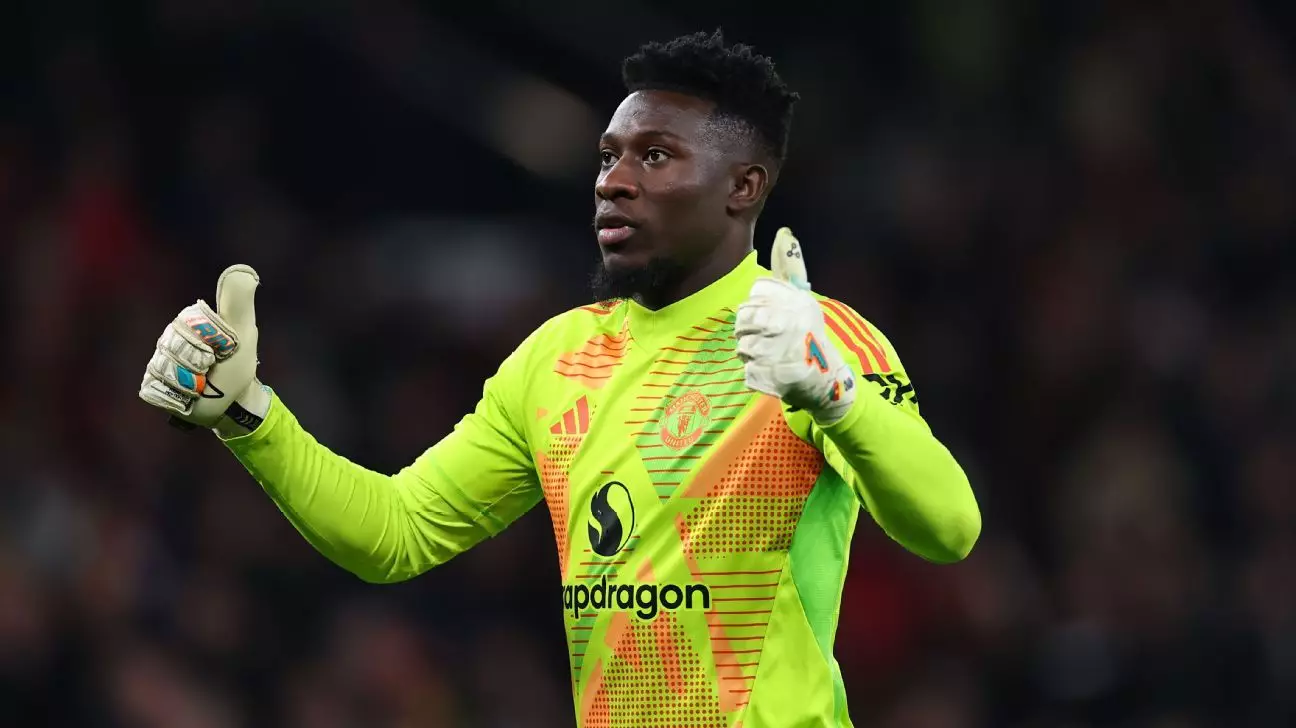As Manchester United gears up for a new chapter under Rúben Amorim, the question on everyone’s mind is how the team will adapt to his tactical style. Set to take the helm on November 11, the former Sporting CP manager will introduce a shift from the traditional 4-3-3 formation to a more dynamic 3-4-3 system. This transition marks not just a change in formation, but a fundamental shift in approach that holds significant implications for every player in the squad.
André Onana, United’s esteemed goalkeeper, has expressed confidence that the players are more than capable of making this adaptation. He emphasized a sense of pragmatism within the squad, asserting that, while the new system may be different, the players are equipped to meet the demands it entails. Onana stated at a press conference, “Everyone here is capable of doing it. It won’t be an issue for us.” This sentiment highlights the resilience and versatility of the squad, but the challenge of adaptation should not be underestimated.
In the interim, Ruud van Nistelrooy is steering the ship as caretaker manager, filling the gap left by Erik ten Hag. His future, however, remains uncertain amid the excitement of Amorim’s impending arrival. Van Nistelrooy’s promotion to interim boss wasn’t without its challenges, and his lack of communication with Amorim raises questions about his long-term role within the club. He noted that while he has yet to discuss the future with Amorim, he is focused on steering the team through the upcoming matches with diligence and responsibility.
The backdrop of this managerial shift is telling; van Nistelrooy has been tasked with maintaining morale and performance levels while navigating a transitional period. It speaks volumes about the potential turbulence associated with coaching changes, particularly in a team with the high expectations that envelop Manchester United. His willingness to support Amorim offers a glimmer of continuity amid uncertainty.
As United prepares to face PAOK in the Europa League, the team is gathering momentum with the return of key player Leny Yoro. After enduring a troublesome recovery from a broken foot suffered during preseason, Yoro’s return to training is a significant boost for the squad. His integration into the team dynamics will be pivotal, especially as the players acclimate to the new tactical approach.
However, the injury list remains a concern, with stalwarts like Luke Shaw and Harry Maguire still sidelined. Such absences can impact the team’s cohesion and performance as they adapt to Amorim’s system. The importance of training sessions cannot be overstated; a well-prepared squad will be crucial for the execution of Amorim’s tactical vision. Onana’s optimistic tone reflects a broader expectation that these challenges can be navigated successfully.
With Rúben Amorim’s appointment just around the corner, there is palpable excitement paired with trepidation at Old Trafford. The transition signifies a departure from the recent past and a leap into an era that is teeming with potential. Amorim’s successful tenure at Sporting CP serves as an encouraging precedent, demonstrating his capability to inspire and implement tactical innovations.
Questions about team cohesion, individual player roles, and the adaptability of the squad are inevitable as this new chapter commences. United’s ability to seamlessly transition into a new tactical structure will be under scrutiny, but the prevailing view among players like Onana is one of readiness and resilience.
While there are obstacles ahead—particularly concerning player integration and adapting to a fresh tactical identity—the collective belief in the squad’s ability to rise to the challenge is strong. As Manchester United steps into this new era, fans await the exciting prospect of seeing their beloved team not just survive but thrive under Rúben Amorim’s leadership.

